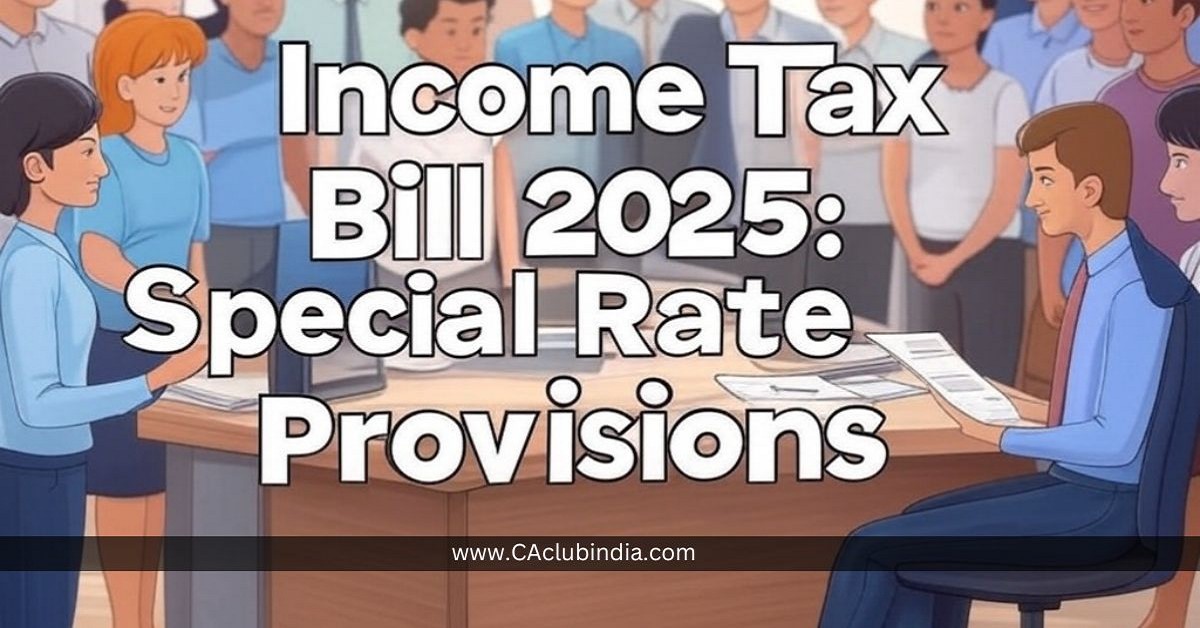The Income Tax Bill, 2025, which aims to simplify and restructure the existing Income-tax Act, 1961, has been tabled in Parliament. With taxpayers seeking clarity on the new tax regime, special rate provisions, and compliance requirements, here are some important takeaways:

No Need to Opt for the New Tax Regime Again
Taxpayers who have already opted for the new tax regime under the Income-tax Act, 1961, will not be required to opt for it again under the proposed law. The transition is expected to be seamless, ensuring that all rights and duties of taxpayers remain intact.
New Rules and Forms to be Announced Post Enactment
The Bill is currently under parliamentary review. Once enacted, new rules and forms for tax compliance, including provisions for Minimum Alternate Tax (MAT) and opting for the new tax regime, will be introduced. The government has assured that these administrative measures will be designed to ensure taxpayer convenience.
Budget 2024-25 Reforms Incorporated
All recent income tax slab changes and rebates announced in the Union Budget 2024-25 have been incorporated into the Income Tax Bill, 2025, ensuring consistency in tax policies for individual taxpayers.
No Change in Special Rate Provisions, But More Clarity
While there are no policy changes in special rate taxation, the Income Tax Bill, 2025, focuses on making tax laws more structured and taxpayer-friendly through:
- A dedicated section for the New Tax Regime covering individuals, domestic companies, and cooperative societies.
- Elimination of redundant provisions for better readability.
- Simplified tax tables to replace multiple explanations and provisos, making it easier to understand special income categories taxed at special rates.
What's Next?
As the Income Tax Bill, 2025, progresses through the legislative process, more details regarding compliance, forms, and implementation timelines will be announced. Taxpayers and professionals are advised to stay updated for further notifications.




 CAclubindia
CAclubindia
